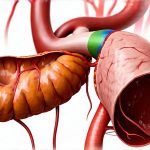Gastroesophageal reflux disease (GERD), commonly known as acid reflux, is more than just an occasional heartburn nuisance. For many individuals, it’s a chronic condition that significantly impacts their quality of life, extending beyond digestive discomfort to influence seemingly unrelated symptoms like fatigue and shakiness. While the link between GERD and these systemic effects isn’t always immediately obvious, emerging research increasingly demonstrates how prolonged acid imbalance can disrupt various physiological processes, leading to energy fluctuations and feelings of instability. Understanding this complex interplay is crucial for effectively managing GERD and restoring overall well-being.
The digestive system operates on a delicate balance, relying on specific pH levels for optimal function. When this balance is consistently disrupted by excessive stomach acid flowing back into the esophagus – the hallmark of GERD – it can initiate a cascade of effects that extend far beyond the gastrointestinal tract. Chronic inflammation, nutrient malabsorption, and even sleep disturbances are all potential consequences. These factors, individually or collectively, can drain energy reserves and contribute to sensations of shakiness or trembling, often mistaken for other conditions like anxiety or hypoglycemia. It’s important to note this is not a simple cause-and-effect relationship; it’s a complex interplay where GERD symptoms may exacerbate existing vulnerabilities or create new ones.
The Gut-Energy Connection: How Acid Imbalance Impacts Cellular Function
The concept of the gut-energy connection is gaining traction in medical science, highlighting the profound influence our digestive health has on overall energy production and utilization. Mitochondria, often referred to as the “powerhouses” of cells, are responsible for converting nutrients into usable energy (ATP). However, their efficiency can be compromised by chronic inflammation and nutrient deficiencies – both common consequences of untreated GERD. – Inflammation triggered by acid reflux can create a systemic inflammatory response, diverting resources away from essential functions like cellular repair and energy production. – Prolonged exposure to stomach acid can damage the intestinal lining, impairing nutrient absorption. Essential vitamins and minerals (like B12, iron, and magnesium) are vital for mitochondrial function; their deficiency directly impacts ATP synthesis. – The gut microbiome – a complex ecosystem of bacteria residing in our digestive tract – plays a critical role in nutrient metabolism and immune regulation. GERD can disrupt this delicate balance, further contributing to inflammation and malabsorption.
The link isn’t merely theoretical. Consider the energy demands of managing chronic GERD itself. Constant discomfort, nighttime awakenings due to heartburn, and anxiety surrounding potential flare-ups all contribute to a state of heightened physiological arousal that depletes energy reserves. Individuals with GERD often experience disrupted sleep patterns, which further exacerbates fatigue and shakiness. This creates a vicious cycle where the condition itself drains energy, while also hindering the body’s ability to replenish it effectively. In essence, the constant battle against acid reflux can leave individuals feeling perpetually exhausted and unstable.
Furthermore, the vagus nerve – a major cranial nerve connecting the gut to the brain – is significantly impacted by GERD symptoms. This bidirectional communication pathway influences everything from digestion to heart rate variability and stress response. Chronic irritation of the esophagus can lead to vagal nerve dysfunction, potentially contributing to feelings of anxiety, fatigue, and even tremors. Addressing the underlying acid imbalance isn’t just about relieving heartburn; it’s about restoring optimal gut-brain communication and supporting overall physiological balance. Can Connection and Calm Support Digestion can also play a role in this process.
Nutrient Deficiencies & Their Role in Shakiness
Shakiness is often a sign that something is amiss within the body’s intricate biochemical processes. While anxiety or low blood sugar are common culprits, nutrient deficiencies frequently play a significant role, especially in individuals with chronic health conditions like GERD. Acid reflux and subsequent malabsorption can lead to several key deficiencies that directly contribute to tremors and energy fluctuations: – Magnesium: Crucial for nerve function and muscle relaxation. Deficiency can manifest as muscle twitching, tremors, and fatigue. – Iron: Essential for oxygen transport. Iron deficiency anemia causes fatigue, weakness, and shakiness. – Vitamin B12: Vital for neurological health and red blood cell production. Deficiency leads to fatigue, numbness, and potentially nerve damage that can cause tremors. – Calcium: Plays a role in muscle contraction and nerve transmission; imbalances can contribute to muscle spasms and shakiness.
The relationship between GERD and these deficiencies is often overlooked. Medications used to manage acid reflux, such as proton pump inhibitors (PPIs), can further exacerbate nutrient absorption issues. For example, long-term PPI use has been linked to reduced B12 absorption. Therefore, while medication may alleviate symptoms, it’s essential to address potential nutritional consequences and consider supplementation under the guidance of a healthcare professional. It’s also important to remember that obtaining nutrients from whole food sources is generally preferable, focusing on easily digestible options if GERD symptoms are present. Can Low Acid Diets Help With Food Intolerance should be considered alongside dietary modifications.
Addressing nutrient deficiencies isn’t simply about taking supplements; it requires a holistic approach. This includes optimizing digestion through dietary modifications (avoiding trigger foods), improving gut health with probiotics and prebiotics, and ensuring adequate hydration. A healthcare provider can assess individual needs and recommend appropriate testing to identify specific deficiencies and tailor a personalized supplementation plan. Remember that self-treating nutrient deficiencies without proper guidance can be harmful; always consult with a medical professional. Can Environmental Toxins Affect Gut Health is also something to consider when optimizing gut health.
Sleep Disruption & Energy Depletion
Chronic GERD significantly disrupts sleep architecture, leading to fragmented sleep and reduced restorative rest. Nighttime heartburn is a common complaint among individuals with GERD, often waking them up multiple times throughout the night. This constant interruption prevents the body from entering deep, restful stages of sleep crucial for physical and mental restoration. – Sleep deprivation directly impacts energy levels, leaving individuals feeling fatigued, irritable, and prone to shakiness. – The lack of restorative sleep also impairs cognitive function, making it difficult to concentrate and perform daily tasks effectively. – Chronic sleep disruption can exacerbate stress hormones (cortisol), further depleting energy reserves and contributing to anxiety, which can worsen shakiness.
The cycle is particularly insidious: GERD disrupts sleep, leading to fatigue and increased stress, which in turn exacerbates GERD symptoms. Breaking this cycle requires a multifaceted approach that addresses both the digestive and sleep components of the condition. Lifestyle modifications such as elevating the head of the bed, avoiding late-night meals, and practicing relaxation techniques before bedtime can help minimize nighttime reflux episodes. Can Sleep Position Affect Digestion may also provide some relief.
Furthermore, optimizing sleep hygiene is essential. This includes establishing a regular sleep schedule, creating a dark, quiet, and cool sleep environment, and limiting exposure to screens before bedtime. In some cases, addressing underlying sleep disorders like sleep apnea may also be necessary to improve sleep quality. If GERD symptoms are severely disrupting sleep, discussing medication adjustments or alternative therapies with a healthcare provider is crucial.
Stress & The Vagal Nerve Connection
Stress significantly impacts both GERD symptoms and the body’s energy regulation systems. When stressed, the body activates the “fight-or-flight” response, releasing hormones like cortisol that divert resources away from digestion and towards immediate survival needs. This can exacerbate acid reflux as stress often leads to increased stomach acid production and altered gut motility. – Chronic stress weakens the vagal nerve’s ability to regulate digestive function and heart rate variability. A compromised vagal tone is associated with increased inflammation, fatigue, and anxiety. – Stress also depletes energy reserves, contributing to feelings of shakiness and exhaustion.
The vagus nerve plays a crucial role in maintaining homeostasis – the body’s internal balance. When functioning optimally, it promotes relaxation, digestion, and emotional regulation. However, chronic stress can disrupt this delicate balance, leading to vagal nerve dysfunction. Techniques that stimulate the vagus nerve, such as deep breathing exercises, meditation, yoga, and cold water immersion, can help restore its function and improve overall well-being. Can Clutter Affect Digestion and Mind is relevant here because stress from clutter impacts the vagal nerve.
Addressing stress is not about eliminating it entirely; it’s about developing healthy coping mechanisms. Mindfulness practices, regular exercise, social connection, and engaging in enjoyable activities can all help manage stress levels and support vagal nerve health. Recognizing the interconnectedness between stress, GERD, and energy regulation is crucial for implementing a holistic approach to wellness. It’s important to remember that seeking professional support from a therapist or counselor can provide valuable tools and strategies for managing stress effectively. Can Gut Health Affect Hormone Regulation is also relevant, as hormone imbalance caused by chronic stress impacts digestion.


















